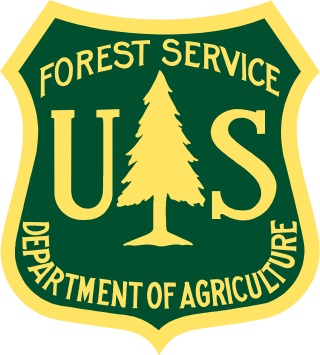
Natural resources are resources that are drawn from nature and used with few modifications. This includes the sources of valued characteristics such as commercial and industrial use, aesthetic value, scientific interest, and cultural value. On Earth, it includes sunlight, atmosphere, water, land, all minerals along with all vegetation, and wildlife.

Lumber is wood that has been processed into uniform and useful sizes, including beams and planks or boards. Lumber is mainly used for construction framing, as well as finishing. Lumber has many uses beyond home building. Lumber is referred to as timber in the United Kingdom, Europe, Australia, and New Zealand, while in other parts of the world the term timber refers specifically to unprocessed wood fiber, such as cut logs or standing trees that have yet to be cut.

The Sydney Push was an intellectual subculture in Sydney from the late 1940s to the early 1970s. Its politics were predominantly left-wing libertarianism. The Push operated in a pub culture and included university students, academics, manual workers, musicians, lawyers, criminals, journalists and public servants. Rejection of conventional morality and authoritarianism was a common bond. Students and staff from Sydney University, mainly the Faculty of Arts, were prominent members. In the 1960s, students and staff from the University of New South Wales also became involved.

Land rehabilitation as a part of environmental remediation is the process of returning the land in a given area to some degree of its former state, after some process has resulted in its damage. Many projects and developments will result in the land becoming degraded, for example mining, farming and forestry. It is crucial that governments and businesses act proactively by working on improvement, lay out rehabilitation standards and ensure that decisions on mediation should be based around value judgment for higher sustainability in the future.

The Forest Stewardship Council GmbH (FSC) is an international non-profit, multistakeholder organization established in 1993 that promotes responsible management of the world's forests via timber certification. This organization uses a market-based approach to transnational environmental policy.

An old-growth forest is a forest that has developed over a long period of time without disturbance. Due to this, old-growth forests exhibit unique ecological features. The Food and Agriculture Organization of the United Nations defines primary forests as naturally regenerated forests of native tree species where there are no clearly visible indications of human activity and the ecological processes are not significantly disturbed. One-third of the world's forests are primary forests. Old-growth features include diverse tree-related structures that provide diverse wildlife habitats that increases the biodiversity of the forested ecosystem. Virgin or first-growth forests are old-growth forests that have never been logged. The concept of diverse tree structure includes multi-layered canopies and canopy gaps, greatly varying tree heights and diameters, and diverse tree species and classes and sizes of woody debris.

The Programme for the Endorsement of Forest Certification (PEFC) is an international, non-profit, non-governmental organization which promotes sustainable forest management through independent third-party certification. As of 2006, it was considered the certification system of choice for small forest owners in Europe.

The Forest Products Laboratory (FPL) is the national research laboratory of the United States Forest Service, which is part of USDA. Since its opening in 1910, the FPL has provided scientific research on wood, wood products and their commercial uses in partnership with academia, industry, tribal, state, local and other government agencies. The laboratory is headquartered in Madison, Wisconsin. The focus of the Forest Products Laboratory is to promote healthy forests and forest-based economies through the efficient, sustainable use of the Nation's wood resources.

The Sydney SuperDome is a multipurpose arena located in Sydney Olympic Park suburb of Sydney, New South Wales, Australia. It was completed in 1999 as part of the facilities for the 2000 Summer Olympics.

Essential Glastonbury is a promotional cover CD given away with issue 216 of Q magazine. The CD was released in cooperation with Greenpeace with the result that the cover was printed on recycled paper. The following excerpt is the introduction from the inside of the cover sleeve.
A NOTE FROM GREENPEACE — Ancient forests are home to nearly two thirds of the world’s land-based species and are vital to the health of our planet. Yet these unique ecosystems are still being trashed, often to make throwaway timber and paper products
A NOTE FROM THOM YORKE OF RADIOHEAD — right now we are wiping out many rare and very important species, permanently. All for the sake of crap garden Furniture and click-together floors. Nuts.
Visit www.saveordelete.com to find out more about how to change this situation. If you are at the Glastonbury Festival 2004 come and visit us at the Greenpeace field.

Asia Pulp & Paper (APP) is an Indonesian pulp and paper company based in Jakarta, Indonesia. One of the largest pulp and paper companies in the world, it was founded as Tjiwi Kimia by Eka Tjipta Widjaja in 1972. Asia Pulp & Paper is a subsidiary of Sinar Mas Group and was officially formed in 1994 when Sinar combined its paper and pulp operations from Tjiwi Kimia and PT Inda Kiat Pulp & Paper.

Timber recycling or wood recycling is the process of turning waste timber into usable products. Recycling timber is a practice that was popularized in the early 1990s as issues such as deforestation and climate change prompted both timber suppliers and consumers to turn to a more sustainable timber source. Recycling timber is the environmentally friendliest form of timber production and is very common in countries such as Australia and New Zealand where supplies of old wooden structures are plentiful. Timber can be chipped down into wood chips which can be used to heat homes or generate electricity.

A forest product is any material derived from forestry for direct consumption or commercial use, such as lumber, paper, or fodder for livestock. Wood, by far the dominant product of forests, is used for many purposes, such as wood fuel or the finished structural materials used for the construction of buildings, or as a raw material, in the form of wood pulp, that is used in the production of paper. All other non-wood products derived from forest resources, comprising a broad variety of other forest products, are collectively described as non-timber forest products (NTFP). Non-timber forest products are viewed to have fewer negative effects on forest ecosystem when providing income sources for local community.

Philip David Radford is an American activist who served as the executive director of Greenpeace USA. He was the founder and President of Progressive Power Lab, an organization that incubates companies and non-profits that build capacity for progressive organizations, including a donor advisory organization Champion.us, the Progressive Multiplier Fund and Membership Drive. Radford is a co-founder of the Democracy Initiative, was founder and executive director of Power Shift, and is a board member of the Mertz Gilmore Foundation. He has a background in grassroots organizing, corporate social responsibility, climate change, and clean energy. He currently serves as the Chief Strategy officer at the Sierra Club.
Pacific Green designs and manufactures furniture and architectural products. It is most recognised for its development of Palmwood, a sustainable substitute for tropical hardwood. Pacific Green products are distributed internationally.
Recycling can be carried out on various raw materials. Recycling is an important part of creating more sustainable economies, reducing the cost and environmental impact of raw materials. Not all materials are easily recycled, and processing recyclable into the correct waste stream requires considerable energy. Some particular manufactured goods are not easily separated, unless specially process therefore have unique product-based recycling processes.
The Papua New Guinea Forest Authority (PNGFA) was established in 1993 under the Forestry Act, 1991. It replaced the former Department of Forest and unified all the Provincial Forest Divisions and the Forest Industries Council. This restructuring was the result of the 1989 Barnett Commission of Inquiry into forestry in Papua New Guinea.

Coca-Cola Place, originally known as The Ark, is a 21 level commercial office building located at 16-40 Mount St in North Sydney, Australia. It is jointly owned by Investa Property Group and Investa Commercial Property Fund and was designed by Rice Daubney. Major tenants include Coca-Cola Europacific Partners Gartner, McAfee and ARN Media.

Waste management in Australia started to be implemented as a modern system by the second half of the 19th century, with its progresses driven by technological and sanitary advances. It is currently regulated at both federal and state level. The Commonwealth's Department of the Environment and Energy is responsible for the national legislative framework.

The Minister for Forests was a ministry in New South Wales responsible for the management of forests for the purpose of the timber industry and was established in 1916 and abolished in 2019. While it was a separate portfolio for much of this period, it was generally held in conjunction with another portfolio, typically Lands or Agriculture.



















